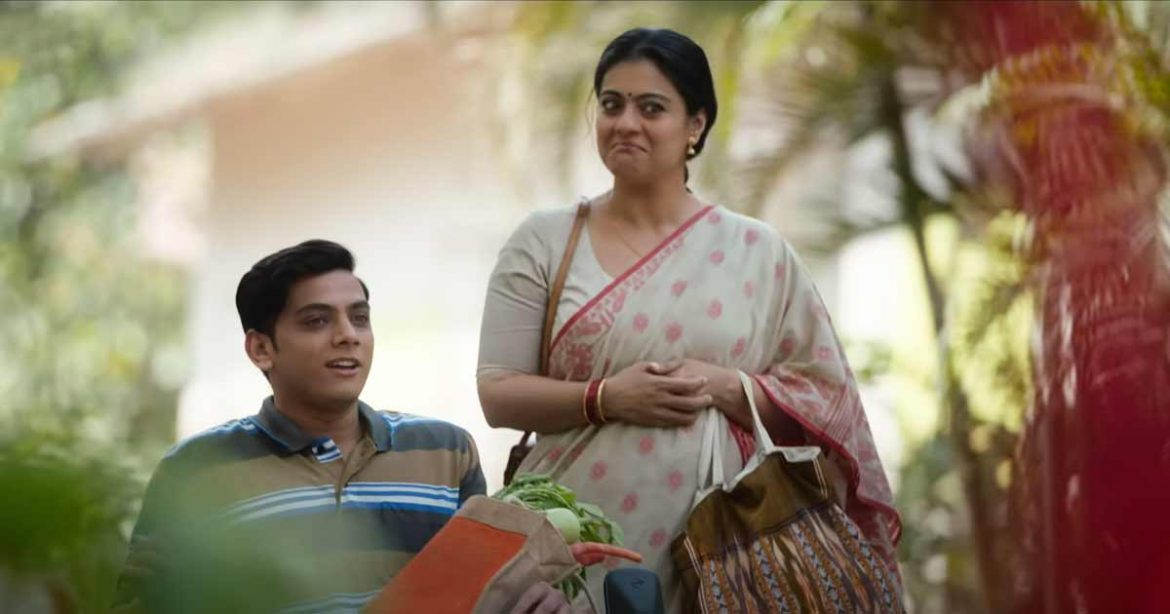Good Intentions:
Revathy had acted in a recent film, Aye Zindagi, about a terminally ill patient’s need for an organ donation to save his life.
Now as a director, she takes up another film that is similar in spirit if not in content, based on a book The Last Hurrah by Shrikant Murthy, inspired by a true story. In Salaam Venky too, the titular character, Venkatesh ‘Venky’ Krishnan (Vishal Jethwa) suffers from a rare genetic disorder, Duchenne muscular dystrophy, that slowly wastes away the patient’s muscles, causing an early and painful death. From childhood, Venky has been on a wheelchair, though his zest for life and sense of humour are undiminished. His mother, Sujata (Kajol), has made it her life’s mission to prolong Venky’s life as much as medically possible, but when he lands in the hospital for the 13th time, hope to save him starts to fade.
His doctor at the hospital (Rajeev Khandelwal) and nurse (Maala Parvathi) are devoted to Venky, to the extent that it looks like they have no other patients. Venky is aware of impending death, and wishes to donate his organs, but Indian law does not permit it. The first half of the film introduces various characters—a guru (Ananth Mahadevan), in whose ashram Sujata and Venky live, his sister Shardu (Ridhi Kumar), and his visually impaired girlfriend (Aneet Padda). This attempt to sugar coat Venky’s illness, and introduce romance and songs into the story actually takes away from the actual issue that comes up later.
To fulfill her son’s wish, Sujata goes to court to demand his right to die and his request to donate his organs. She has on her side, an earnest lawyer (Rahul Bose) and overwrought TV journalist (Aahana Kumra). They whip up a legal and ethical debate all over the country and fight the case before a sympathetic judge (Prakash Raj), and a sharp public prosecutor (Priyamani), who insists that granting a person the right to die amounts to murder and can be easily misused by greedy relatives.
It is decidedly strange that in India, with its evident lack of respect for human life, euthanasia or assisted suicide are illegal, when more financially and medically evolved societies permit them. However, Revathy’s melodramatic handling takes away from a significant debate, At the same time, she prettifies the suffering of Venky and his family—there is, for instance, no mention of where the money for his treatment comes from. The father (a guest appearance by Kamal Sadanah, who, interestingly, was Kajol’s first leading man in Bekhudi) evaded responsibility for the son, but the mother and sister happily carry the burden of care. They practically wear saintly halos around their heads, when anyone caring from terminally ill relatives would suffer from fatigue, and at least, a realistic degree of irritation at the situation they cannot control. In the West, carers are often offered counseling to cope with difficult emotions. Complexity is never sought when manipulated tear-jerking is an easier option. When dealt with like this, tragedy fails to be cathartic,
Kajol, shot in many flattering close-ups, does the best she can with the role, though it is a bit limiting– after all how many expressions can an actor come up with to portray sorrow or misery? Vishal Jethwa (a big change for the actor who played the villain in Mardaani 2) has the expressive face and eyes to do the role that has him immobile most of the time, and he does give the movie-crazy Venky a bright charm. The other actors must have come aboard, to work with the wonderful star director, because the film belongs to Kajol and Jethwa.
(This piece first appeared in rediff.com)

